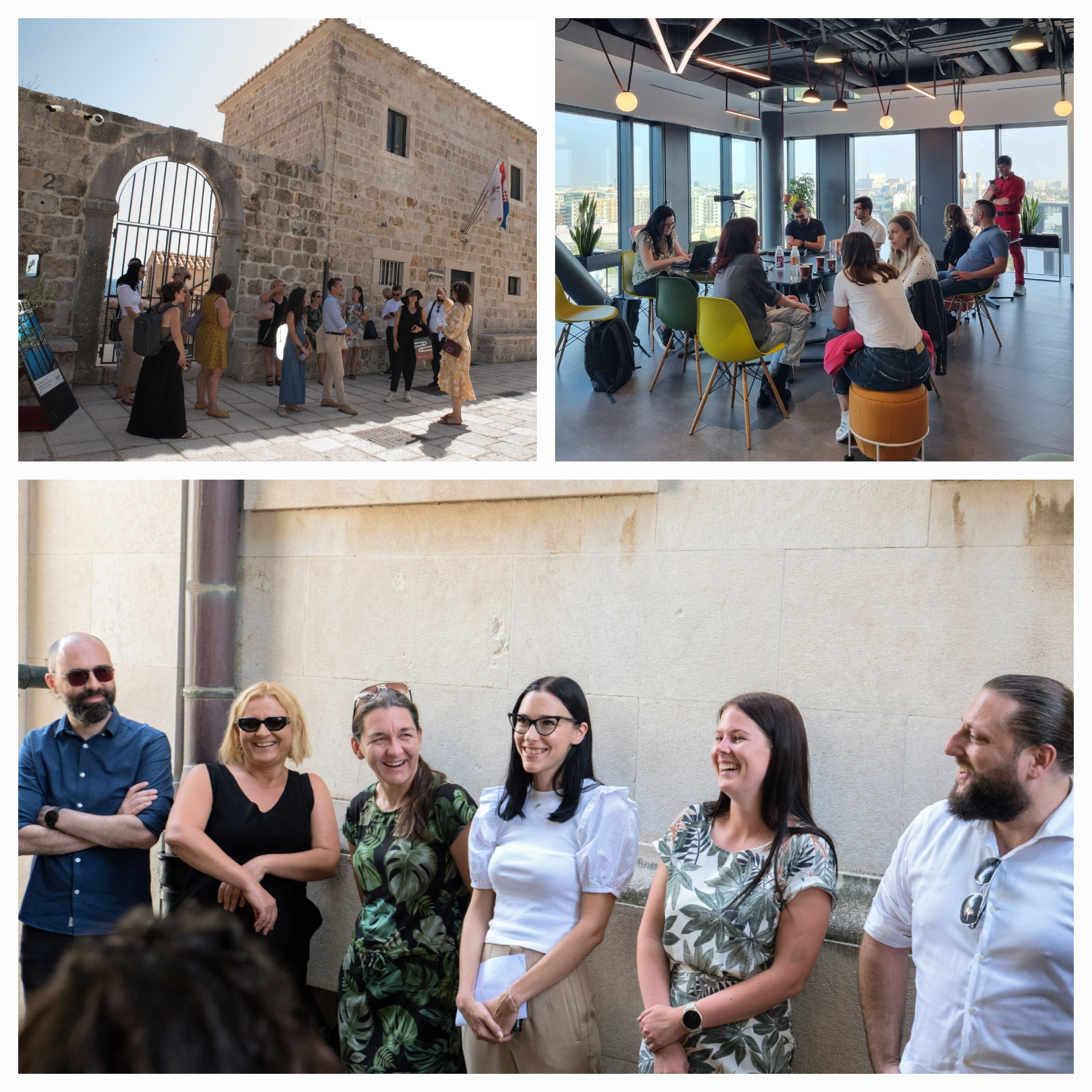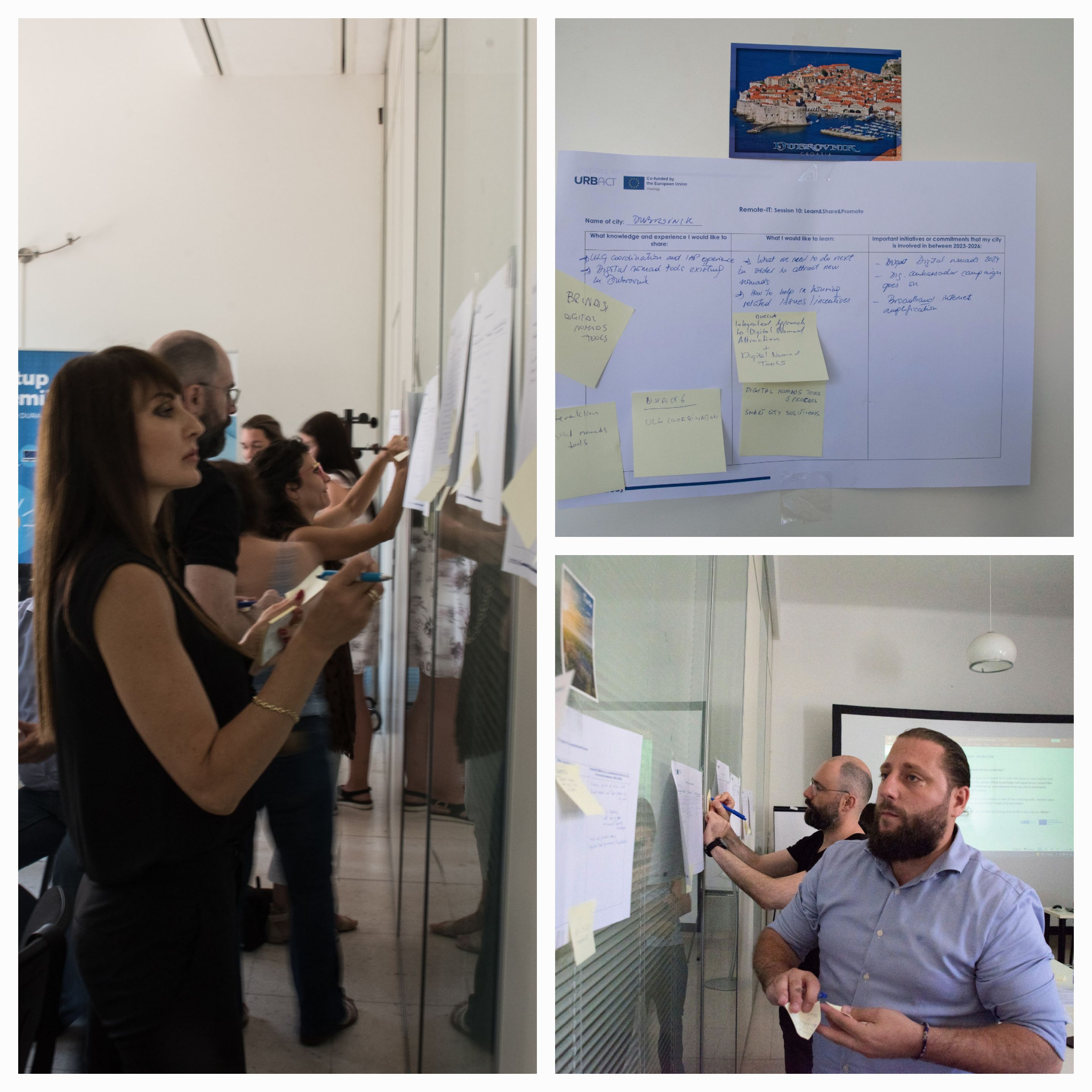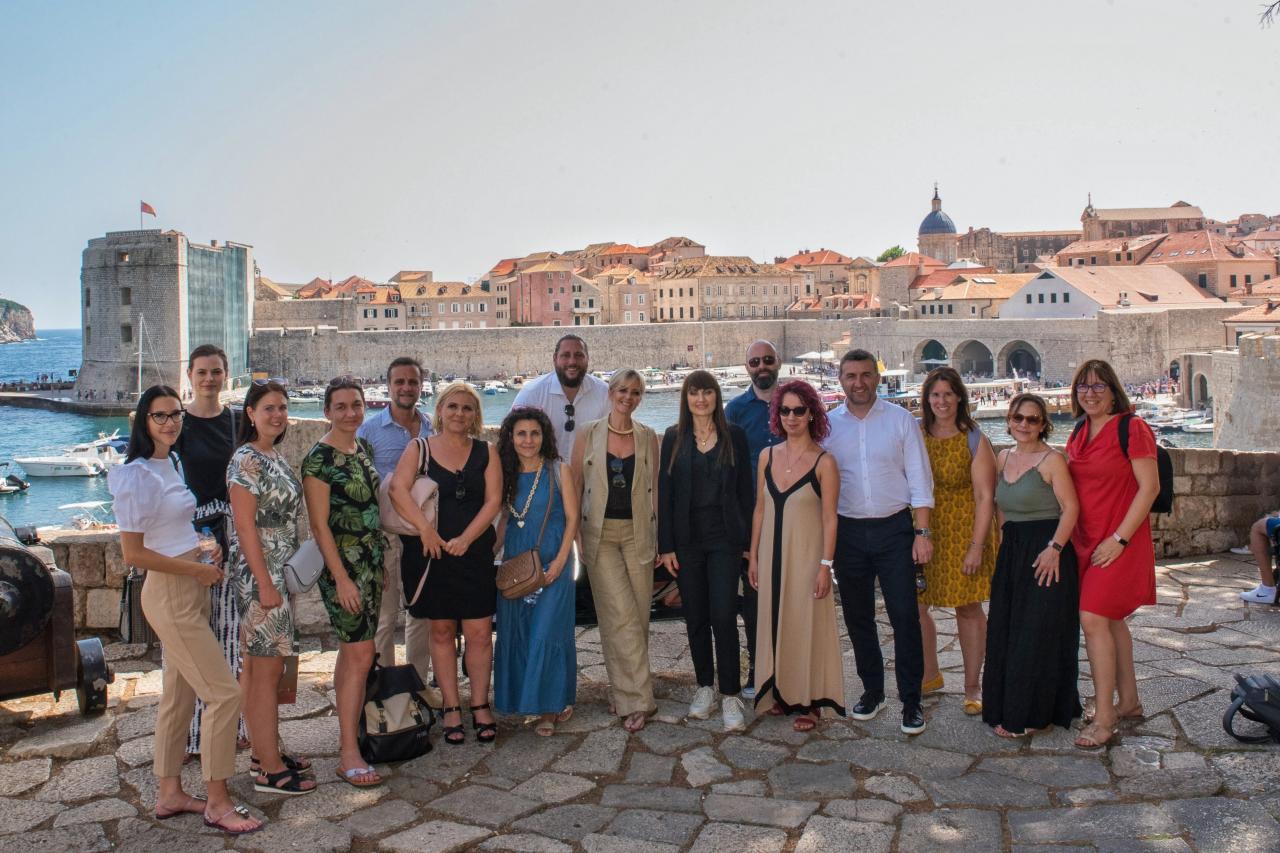Remote-IT is the first EU co-funded network of cities exploring the different layers of remote work preparedness. Led by Dubrovnik through its development agency DURA, the network comprises eight cities including Brindisi, Bucharest District 6, Câmara de Lobos, Heraklion, Murcia, Tartu and Tirana. Their common goal is to tackle the complex transformations set in motion by the de-localization of work.
The COVID-19 crisis has accelerated pre-existing structural trends such as digitalisation, leading in the rise of the phenomenon of international remote workers (digital nomads) and teleworking practices. At the same time, public administrations now need new governance models and skills to be able to both maintain the delivery of digital public services, but also manage their own hybrid work practices.

Pattern of work change- what does that mean for cities?
Remote-IT encompasses cities that are just starting to feel the impact of the changes in work patterns brought about by the pandemic. Cities as Dubrovnik, Brindisi, Camara de Lobos, Heraklion, Murcia and Tirana are now being considered as potential destinations for remote workers, presenting them with the opportunity to reevaluate their current unsustainable tourism practices, attract valuable talent to their local communities, and work towards climate neutrality. On the other hand, cities which were already leaders in ICT connectivity solutions before the pandemic, now face a different set of challenges. For example, Tartu needs to focus on maintaining and expanding cybersecurity for remote work practices and public service deployment, while Bucharest must address how to improve the quality of life for its residents who may now consider other destinations for remote work. All cities in the network are listed among the top 50 places to work remotely, as published by independent publications and blogs. Additionally, these cities are part of countries that were the first to adopt "digital nomad" visas, contributing to the shared governance challenges of a complex phenomenon that until recently did not exist.
URBACT method in action: network updates from 2023
Since its approval in June 2023, Remote-IT network has been the catalyst for translating the URBACT method into action. Starting from an insightful in-person transnational meeting hosted by the lead partner in Dubrovnik between July 13-14 2023, each city partner was able to analyse in detail what is the starting point of each city in terms of remote work preparedness and identify initial practices they would like to learn from each member of the network. Dubrovnik’s own journey of starting to recognize that digital nomads are a niche market which can help the city transition towards a more sustainable model of tourism was explored through site visits and conversations with key local stakeholders. New marketing initiatives such as Dubrovnik’s Digital Nomads Ambassadors programme and conference, the Lazareti co-work spaces and the New European Bauhaus project at the former TUP factory were showcased, as well as the challenges of changing mind-sets of small business owners from the current tourism business model centred on the high-season.

After the transnational meeting in Dubrovnik, city partners went on to set up their local URBACT local group (ULG). Acting as the core local working group for the project, the ULG is composed by relevant local stakeholders in the remote work topic. In the next two years, each ULG from the Remote-IT partners will co-produce an Integrated Action Plan, detailing key objectives, actions and targeted resources for achieving transformations for remote work preparedness at city level. In this context, the role of the ULG coordinator is crucial, as she/he overlooks the facilitation and the active engagement of all ULG members. Fortunately, city partners also took part of the Malmo URBACT Summer University between August 28-30 2023, where practical resources and simulations on how to facilitate ULG meetings and which participatory tools to use for identifying challenges, building a vision and translation the vision into objectives, were shared.
The city visits hosted by each network partner provided an additional opportunity to kick-start the activity of each ULG. Organized in the first few months of a network’s lifetime, these visits allow the URBACT Lead Expert and the Lead Partner to better understand the local context and challenges in order to propose a tailor-made network methodology. Camara de Lobos organized an extensive workshop and site visits with both local and regional stakeholders, some meeting for the first time to discuss the emerging topic of remote workers and how to attract talent locally. Many synergies were created in this way, including identifying possible candidates for the ULG coordinator role. Similarly, both Brindisi and Tirana, engaged a large and diverse group of local stakeholders in the local launch events of Remote-IT. Tartu has already began using the URBACT tools showcased in Malmo USU in their ULG work, while Murcia, Bucharest PS and Heraklion are consolidating and extending the componence of their ULGs.
Work ahead: 2024 and 2025
The next two years will bring many learning and exchange opportunities for both the network members and wider European audience of practioners on remote work topics. Transnational meetings, testing small scale actions at local level, online forums, masterclasses and podcasts will capture how each city is advancing the agenda of attracting digital nomads and remote workers or successfully managing hybrid work practices. The overall goal of this process is to co-create a shared vision on remote work preparedness and translate it in action-oriented strategies (the Integrated Action Plans), which can serve as the blueprint of transformations for the Remote-IT cities. And, hopefully, inspire other cities to proactively lead similar changes in their communities.
Article written by Anamaria Vrabie, URBACT Lead Expert for Remote-IT network

